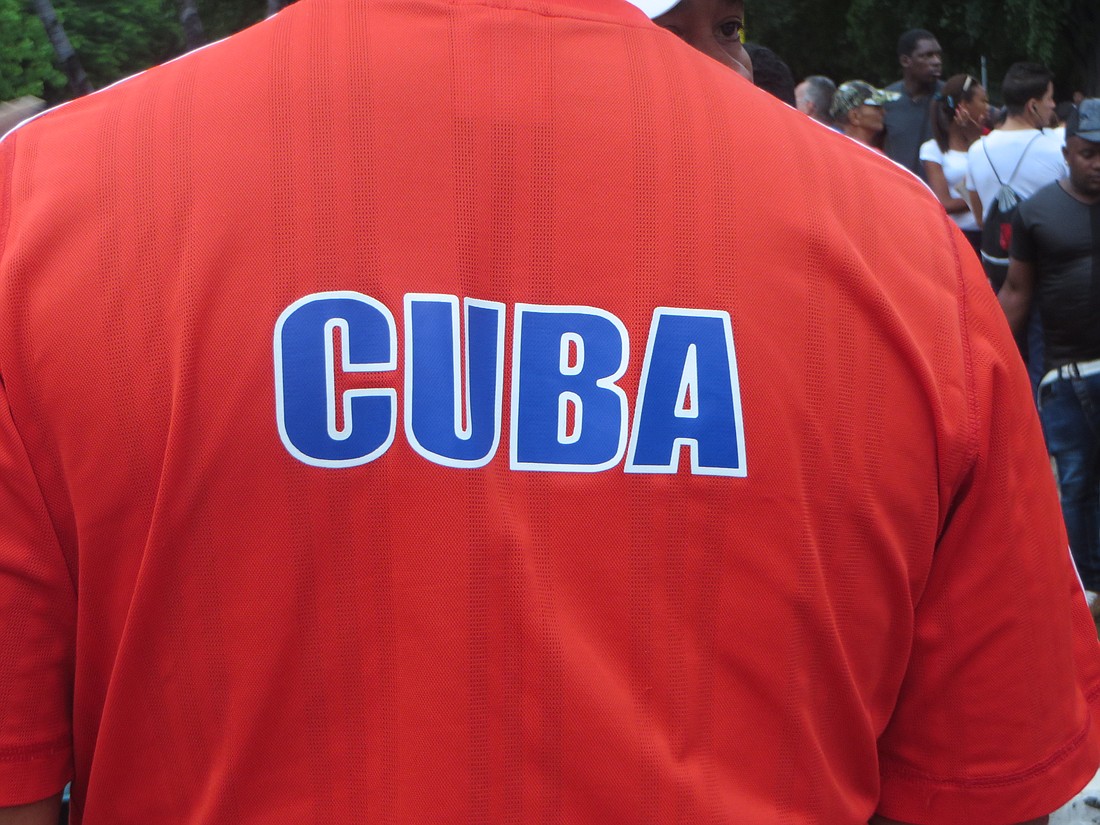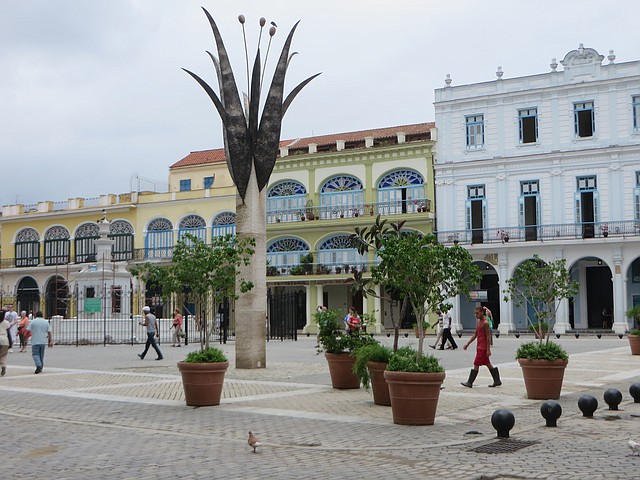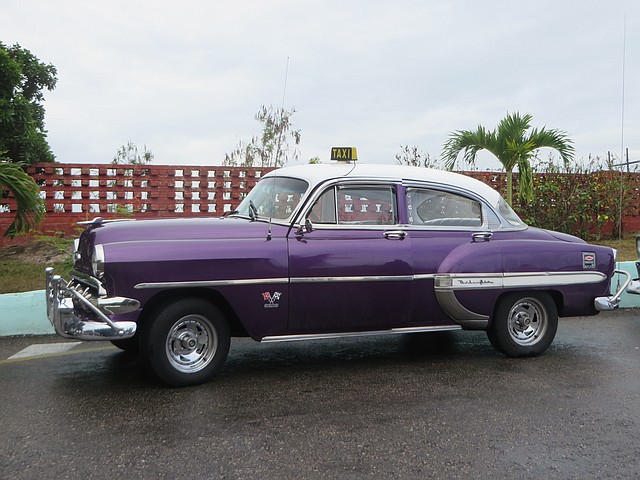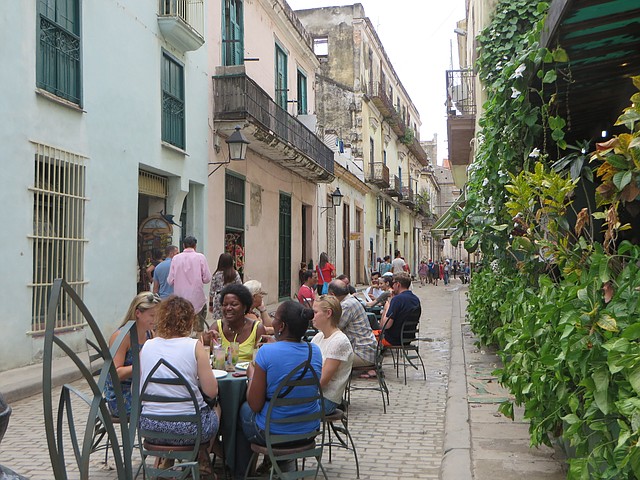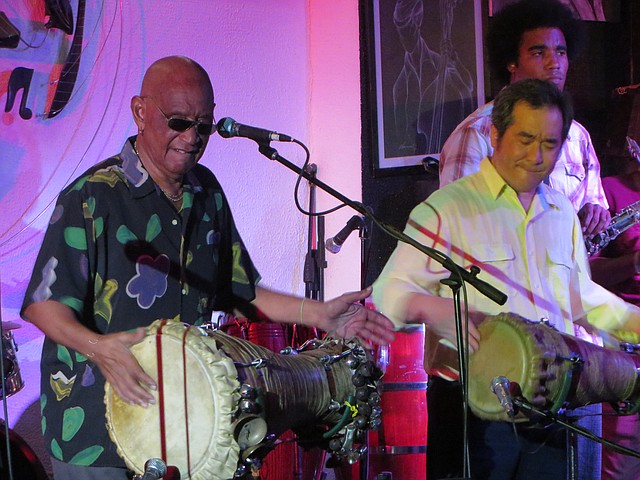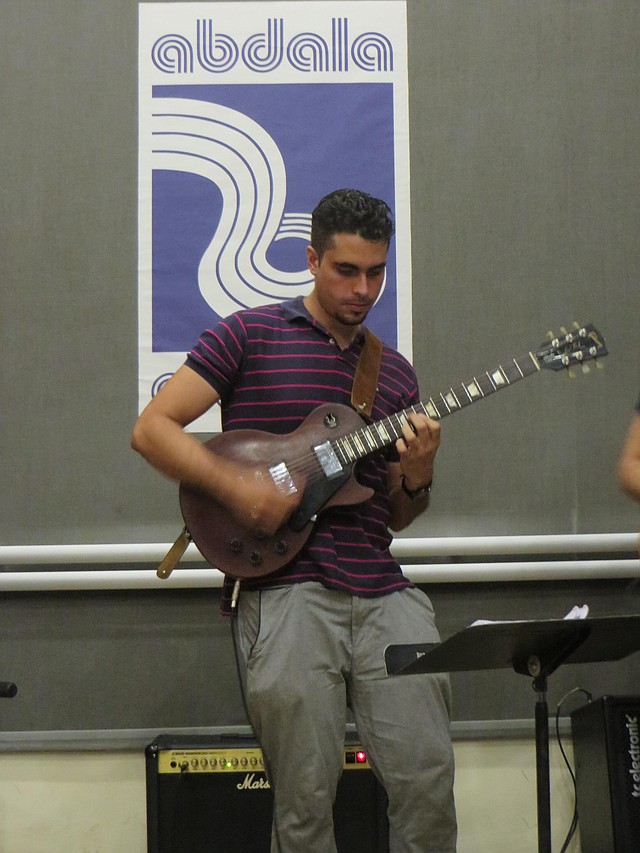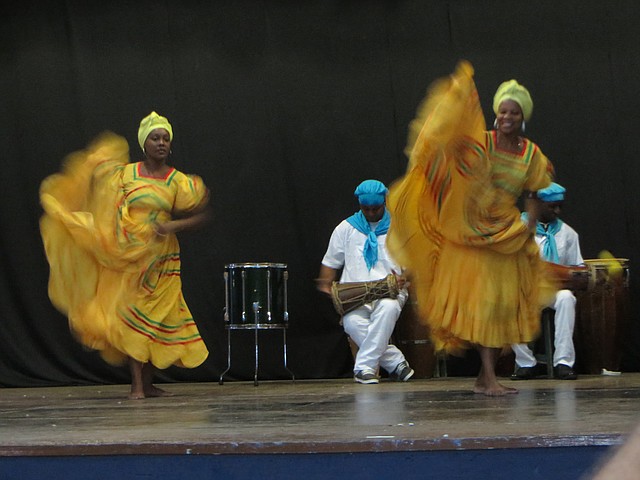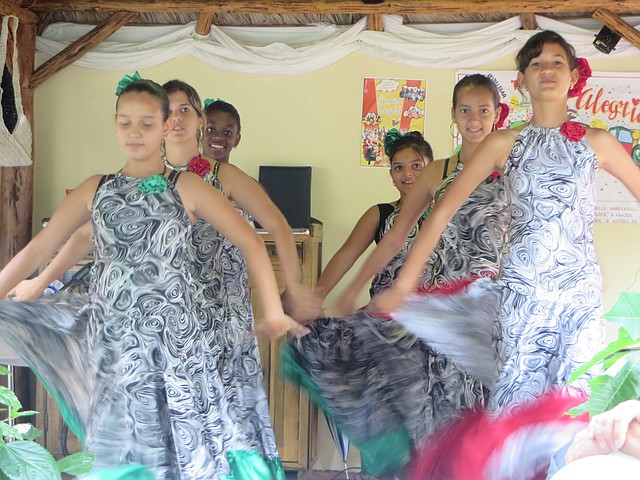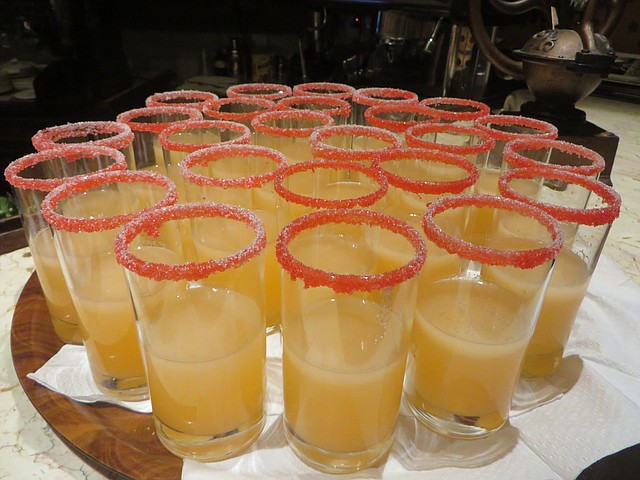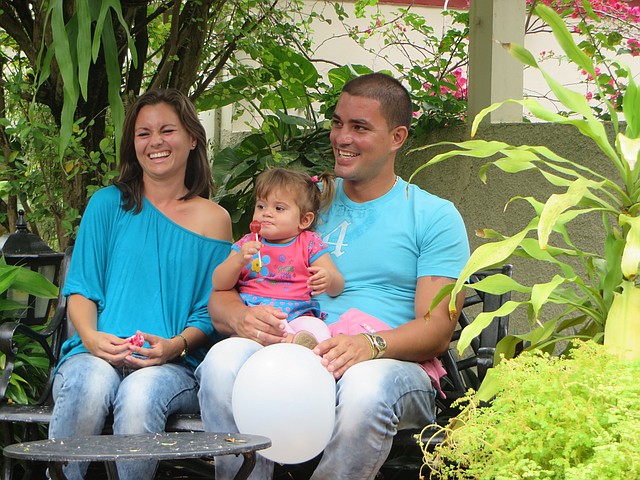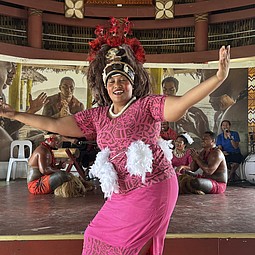Any reason is a good reason to visit Cuba. Maybe it’s the island’s legendary music that’s the allure. Perhaps it’s the colonial architecture and wonderfully preserved history that offers the appeal. Or possibly, the country’s political situation is of great interest to you. Then, of course, there are the people. Comprised of a colorful melting pot of cultures from Spain, Africa, Asia and elsewhere, they represent diversity at its finest.
Cuba has been a forbidden fruit for Americans for more than a half-century and the mystique surrounding it has continued to grow over the years. It has captivated our attention and piqued our interest, which is why I jumped at the chance at visiting our neighbor to the south when given the opportunity. The main reason I decided to journey to this complex country was to satisfy a long held burning curiosity, which was coupled with the sense of urgency I felt in regards to unknown future events. Put it bluntly – I wanted to see Cuba before the Golden Arches and Starbucks made their entrance.
For those Americans who want to explore this unique destination, it’s legally possible, but you still must play by the rules despite the recent thawing in relations between the U.S. and Cuba. If you go, you will need to participate in an educational, cultural or religious-oriented program that fosters people-to-people experiences, which is operated by one of the dozen or so companies that have licenses to bring U.S. citizens to the country. Though the idea of being on a tour might deter you, know that it’s the only way, at present, to get an up-close and personal look at this enigmatic and fascinating place.
I opted to join a music and arts-themed tour entitled “Jazz in Havana” with Insight Cuba, a non-profit organization that has a stellar reputation for providing quality programs. The company is the most experienced provider of licensed people-to-people Cuba travel in the industry. It has sent over 12,000 Americans to Cuba since its inception in 2000 and is a pioneer in this arena, offering a broad selection of tours spanning the country. My fellow travelers, twelve total, were a diverse group, but we shared one common quality – curiosity – plus we all had Cuba at the top of our travel bucket list.
It’s only a mere 93 miles from the U.S., yet Cuba is a world away. Leave your Western certainties behind as you travel to a land that seems frozen in time, and where expecting the unexpected is the optimal attitude to embrace. Each adventure you’ll have, and I guarantee there’ll be many, from crazy midnight rides with cab drivers who spend more time practicing their English and less time with their eyes on the road to wandering down shadowy alleyways at night in search of unmarked private restaurants, will serve to increase your understanding, while confounding your perceptions, of this country.
The first thing you might notice upon arrival are all the vintage American-made cars roaming the streets. There are hundreds of these museum pieces such as Chevy’s Bel Air and Impala models, Ford Thunderbird, Plymouth Belvedere and Mercury Monterrey among others. They’re vestiges from the 1950s when they were brought into Cuba before the U.S. declared a trade embargo in 1960 that stopped all imports. From that point on, innovative Cubans found ways to keep these prized vehicles in operation despite not having the necessary equipment. Over the years, they have been painted and repaired countless times with rebuilt engines and mismatched parts, while their ruined interiors are now hidden underneath ingeniously redone upholstery. Obsessive care has kept many of the cars in remarkable shape, considering their extensive use, primarily as taxi cabs. Instead of nostalgic wheels and collectors’ items, however, they are the livelihood of their owners who depend on them for their major source of income.
Visitors love these bright, candy-colored cars and are drawn to them like magnets. They are in fierce demand and tourists enjoy the experience of cruising through Havana convertible-style with the top down, hands over their heads, as if they’re on an exhilarating roller coaster ride. And if there’s a catchy salsa tune playing on the radio, even better.
You’ll be surprised to find that a number of these classic cab drivers are well-educated folks. One man we met was actually a trained clinical psychologist, who unfortunately could not earn enough money at this profession to support his family. Another was a professor of sports, who also had the same problem. Driving a taxi provides a way for these individuals to make ends meet, as their previous jobs netted them on average a meager $25 a month.
The second observation you will probably note about Cuba is the dilapidated state of its older buildings. Many lie in ruins and tatters and are in desperate need of repair. In some quarters of Havana, for example, it feels like the city is crumbling down around its residents, as there are actual piles of fallen bricks littering the streets. Occasionally, you will see someone trying to clean up the debris - one guy with a shovel and a wheelbarrow making little to no headway on a monster-sized heap. In other locales within this Unesco-listed town, however, the safeguarding of the country’s historical legacy has been an active pursuit with preservation of its colonial treasures a priority. Grandiose squares, stately homes and cobbled walkways provide a glimpse of the opulence that once reigned supreme within this lively metropolis. Though the structures are timeworn and shabby, they still manage to retain their magnificence, like dignified, aging dowagers.
Cubans live their lives outside in the open. This practice will become very apparent to you during your visit. It’s behavior that’s typical of populations residing in warm weather locales, where the majority of residents lack air conditioners and often have small, cramped homes or apartments. Cubans, however, are also very social people who have a deep sense of community. The atmospheric streets of Havana are always bustling and teeming with people. Parents walk their kids to school, then make their way to work or to shop at the markets. Teens hang out together in noisy groups just like they do in other parts of the world. And older citizens sit on benches or on stoops chatting with one another, while watching the scene unfold in front of them. Then there are all the street vendors and shopkeepers who are out in full force promoting their wares. Aromas of tropical fruit and flowers mix with those of tobacco leaf and gas from the ancient vehicles that clog the roadways. There’s also a musty, mildewed odor that’s pervasive, especially in and around the older areas of town. At first, you are hyper aware of these clashing scents, but within just a few days, they become a natural part of the backdrop.
The musicality of the people is also very obvious to everyone who visits the island. Cuba is a rhythm nation with a world famous music scene that is one of the country’s biggest draws. You can feel it everywhere you go - in established venues where performers fill the air with bata and maracas, in the neighborhoods where radios blare with Afro, jazz, rock and rap beats and in the streets when the buskers serenade passersby with their Spanish guitars. The island pulsates with music. It’s an energizer and inspirer. It’s the heartbeat of the people.
On Insight Cuba’s “Jazz in Havana” tour, you’ll be immersed in music and ushered behind the scenes to discover the history of these beats, while engaging in meaningful dialogue with musicians, music teachers and others eager to share their knowledge. Our group visited Abdala, Cuba’s top recording studio, where we were treated to a private jazz performance by the band Real Project. It was a truly special experience, as the group played several original compositions and then took the time to tell us about themselves and their musical influences. Another day we heard the Alejandro Falcon Trio perform on the patio of Espacios Restaurant. Once again, this was a private show exclusive for our group with an opportunity for dialogue. In the evenings, there was more music with famed jazz pianist Roberto Fonseca and his band giving a stellar performance at the Hotel Melía Cohiba. We also heard from the influential musician and musicologist, Alberto Faya, who provided us with an overview of Cuban music, emphasizing its strong relationship between preserving culture and preserving life. “We Cubans,” he said, “breathe music all the time. It’s so much a part of the cultural fabric.”
In addition to music, the tour also incorporated dance and art with excursions to see Afro Cuba, a colorful and dynamic Afro Cuban dance troupe with eye-popping physicality, and the Santa Malia Jazz Dance Project. The latter is comprised of a group of dancers ranging in age from 65 to 87 who perform traditional jazz choreography in the home of Grammy-award winner, Chucho Valdes, one of the country’s most renowned rhythm kings. These senior citizens’ passion and spirit, not to mention their agility and talent, is remarkable. Their love of dance is contagious and during our visit they had everyone on the floor strutting their newly acquired Latin dance moves.
It’s not just the adults who are involved in the arts, but also the children who are carrying on these vibrant traditions in the schools and after school programs. In the village of Matanzas, for example, a new community project offers children the opportunity to learn Cuban and Spanish dance. Other activities include guitar and voice lessons, and classes in basic etiquette. The kids take immense enjoyment in performing for visitors and the pride they have in their accomplishments is testament to the success of the program. Another project we visited was geared towards youth living in Centro Havana, a more high risk area of the city, and involved the art of paper mache. Founded by Lazaro Salsita, a noted painter and lithographer, the program teaches children how to make art using recycled materials and paper mache. They are then free to keep whatever they make or they can choose to sell their creations on site. Salsita’s house is a veritable paper mache museum with hundreds of items lining the walls of every room.
Finally, when it comes to art, a visit to the National Museum of Fine Arts in Havana is a must. There are two buildings; one houses an international collection and the other focuses on works by Cuban artists. The latter contains an impressive range of pieces from Cuban surrealism and contemporary abstracts to landscapes, sculptures and politically-charged works. It’s an eye-opener to the moods and reflections of Cuban artists through the years, who chose to express their reactions to a variety of historical, political and social events.
Food is an integral part of any society and Cuba is no different. You’ll notice that Cubans view mealtimes as social gatherings and reasons for extended family and friends to get together. Though our group had been prepared to expect the food to be bland and repetitive, we were pleasantly surprised to find this not to be the case. We encountered much more than the Cuban dietary staples of black beans and rice. Cuban cuisine is a fusion of Spanish, African and Caribbean flavors. There’s also some Chinese influence, especially in Havana. We sampled an array of tasty options from fresh grilled fish and ceviche to homemade pastas and paellas. And every meal is finished off with a cup of strong Cuban coffee or espresso. As for libations, there are many favorites, from the proverbial mojito and Cuba Libre to the daiquiri and El Presidente, among others. The daiquiri was popularized by the bar La Floridita and championed by Ernest Hemingway, who was a regular visit to this renowned watering hole in Old Havana. A statue of the famed writer is installed next to the bar and photos of him dot the walls. The venerated establishment and its lively scene attracts visitors from around the globe.
One of the best ways to enjoy Cuban food is to dine at a “paladar,” a small, family-run restaurant, usually in a converted part of a home. These charming, intimate settings are a wonderful way to experience a meal, where you’re guaranteed to get authentic, local cuisine, great service and an unforgettable ambiance that often includes live music.
It’s the people of this unique country that will leave the most lasting impression on you. Despite being oppressed and economically depressed for so many years, they remarkably still retain a sense of optimism and joie de vivre. They are warm, open and hospitable to visitors, eager to talk about current events and share their culture, as well as their hopes and dreams for the future. It’s through such cherished interactions that you will experience the true spirit of Cuba.
For more information about Insight Cuba’s tour options to Cuba, visit: www.insightcuba.com
Deborah Stone is a travel and lifestyle writer, who explores the globe in search of unique destinations and experiences to share with her readers. She’s an avid adventurer who welcomes new opportunities to increase awareness and enthusiasm for travel and cross-cultural connections. Her stories appear in a number of publications as well as on various travel websites. Additionally, she can be frequently be heard dishing travel with the hosts of the NPR-affiliated and AARP produced talk radio show, “2 Boomer Babes.” Deborah is a longtime Seattle area resident, who currently resides in Santa Fe, New Mexico.
